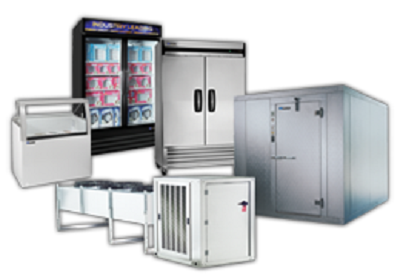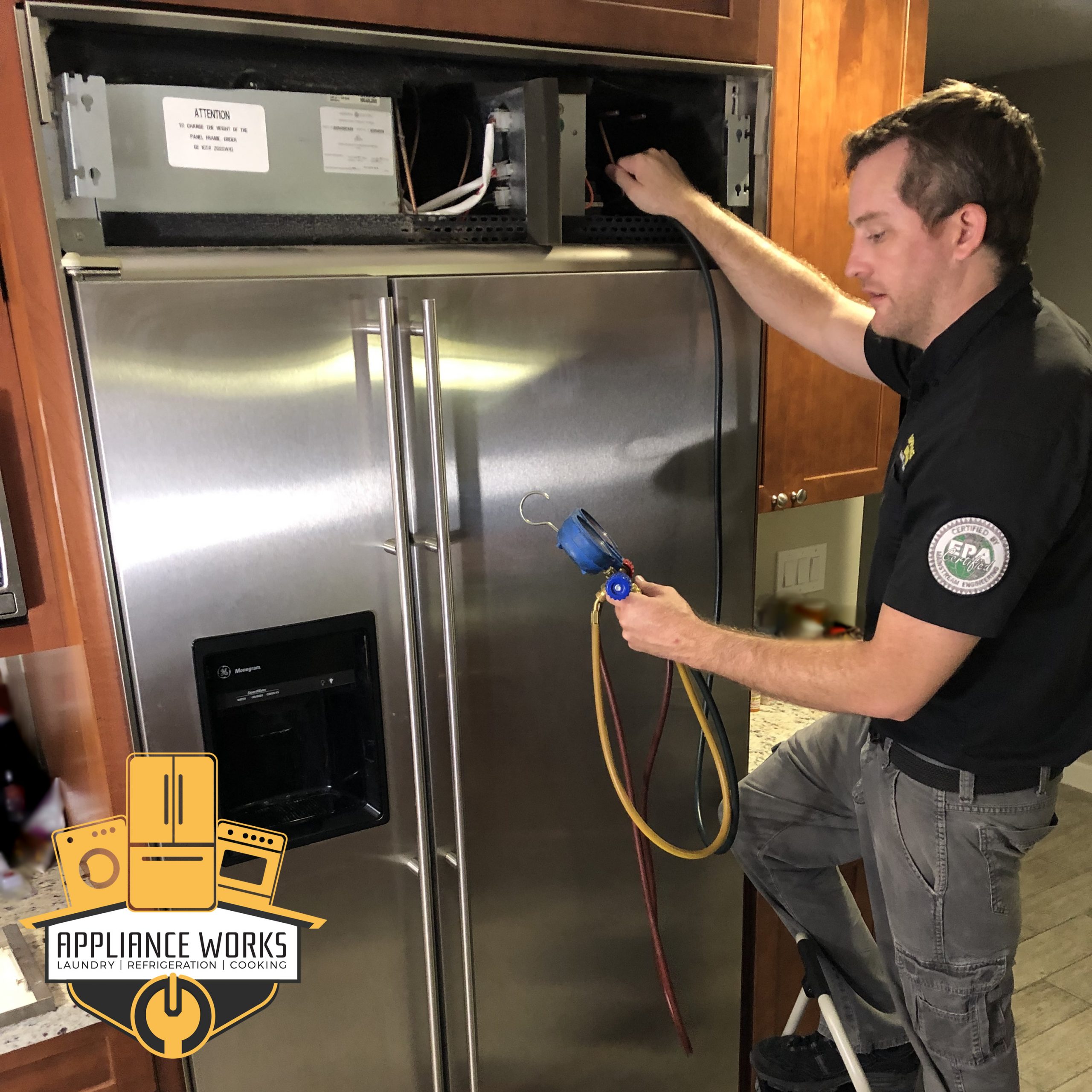Keep Your LG Appliances Running with Dependable Refrigeration & Appliance Repair Service LG Appliance Repair Tips
Keep Your LG Appliances Running with Dependable Refrigeration & Appliance Repair Service LG Appliance Repair Tips
Blog Article
Necessary Tips for Effective Ref Repair to Expand Device Lifespan
When it comes to your fridge, proper repair and upkeep are important for longevity. Understanding typical issues and recognizing when to act can make all the difference.
Recognizing Typical Fridge Troubles
Refrigerators are vital in keeping your food fresh, but they can experience a variety of usual problems that disrupt their efficiency. If you see food spoiling quicker than normal, check the thermostat settings or take into consideration if the door seals are harmed. Acknowledging these concerns early can save you time and money in repairs, ensuring your fridge runs smoothly and efficiently.
Normal Upkeep Practices
To keep your home appliances running efficiently, you require to remain on top of routine maintenance techniques. Tidy the condenser coils, inspect the door seals, and check the temperature setups to ensure peak performance. These easy tasks can conserve you time and cash on repairs down the line.
Tidy Condenser Coils Consistently
Cleaning your condenser coils frequently can considerably improve your home appliance's effectiveness. Dust and dust build up on these coils over time, creating your home appliance to work more difficult and consume more energy. To keep them clean, unplug your appliance and thoroughly remove any protective covers.
Inspect Door Seals
3 basic actions can assist you assure your home appliance's door seals are in good condition. First, evaluate the seals consistently for any splits, tears, or signs of wear. These problems can bring about air leaks, affecting performance. 2nd, tidy the seals making use of cozy, soapy water to remove any kind of debris or grime. A clean seal assures a tight fit and better performance. Do a straightforward test by shutting the door on an item of paper. If you can quickly pull it out without resistance, the seal could require changing. By following these steps, you'll preserve your device's performance and longevity, saving you money on power costs and repairs in the future.
Display Temperature Settings
On a regular basis monitoring your home appliance's temperature level settings is important for best efficiency and effectiveness. Whether you're managing a refrigerator, freezer, or stove, keeping an eye on these setups can prevent numerous concerns. For fridges, go for temperatures in between 35 ° F and 38 ° F; for fridges freezer, stick around 0 ° F. If the temperatures are expensive or reduced, your home appliance may function harder, throwing away power and shortening its life-span. Use a thermometer to check these setups consistently, specifically after major adjustments, like moving your home appliance or changing the thermostat. If you observe fluctuations, adjust the settings accordingly and consult the individual guidebook for assistance. By staying positive about temperature surveillance, you'll assure your home appliances run smoothly and last much longer.
Repairing Air Conditioning Concerns
When your refrigerator isn't cooling appropriately, it can result in spoiled food and squandered money, so resolving the concern immediately is critical. Start by checking the temperature level setups to confirm they're at the suggested degrees, typically around 37 ° F for the refrigerator and 0 ° F for the fridge freezer. If the settings are proper, check the door seals for any type of voids or damage; a faulty seal can enable cozy air to get in.
Following, examine the vents inside the refrigerator and fridge freezer. Verify they're not obstructed by food things, as this can interrupt air flow. Pay attention for the compressor; if it's not running or making unusual noises, it might need interest. Lastly, examine the condenser coils, typically located at the back or base of the unit. Dirt and debris can collect, causing cooling down problems. Clean them with a vacuum cleaner or brush to maximize performance. If problems continue, it may be time to call a specialist.
Taking Care Of Water Leak and Ice Accumulation
If you're dealing with water leak or ice accumulation in your appliance, it's important to determine the source of the trouble. By pinpointing where the water is coming from, you can protect against additional problems and prevent expensive repair services. Allow's discover some reliable techniques to deal with these usual troubles.
Determine Leak Sources
How can you effectively identify the sources of water leak and ice build-up in your appliances? Begin by checking the seals and gaskets on your refrigerator and freezer doors. A worn or broken seal can permit warm air to go into, causing condensation and ice. Next, examine the drainpipe frying pan and drain system for obstructions or obstructions; a backed-up drain can bring about water pooling. Look for any kind of loose links in the water supply line, which can develop leakages. Additionally, examine the defrost drainpipe for ice accumulation, which can interrupt appropriate drainage. By methodically examining these areas, you'll pinpoint the resource of the issue, allowing you to take the necessary steps to repair it and prolong your appliance's lifespan.
Prevent Ice Development
To stop ice development in your appliances, start by verifying the temperature level setups are appropriate. If your refrigerator or fridge freezer is too cold, it can lead to too much ice accumulation. Check the door seals consistently; damaged seals can allow cozy air in, causing condensation and ice development.
Keep the appliance well-ventilated and prevent congestion, as this can block air movement - Dependable Refrigeration & Appliance Repair Service LG Appliance Repair. Likewise, regularly defrost your fridge freezer if it doesn't have an automatic defrost attribute.
If you discover water leakage, determine and fix any type of obstructed drainage openings, as they can add to ice build-up. Finally, tidy the coils and confirm they're working appropriately to keep peak efficiency. Taking these actions will certainly assist expand your appliance's life expectancy and efficiency.
Resolving Noisy Refrigerator Sounds
While it might appear startling, a noisy fridge often indicates minor concerns instead than significant malfunctions. Usual wrongdoers consist of the compressor, followers, and water lines.
Following, check for loosened items inside. Often, containers or shelves can rattle, developing unwanted noise. Tighten or reposition them to remove the noises.
If you discover a clicking noise, it may be the defrost timer. This is usually safe however could indicate it needs evaluation.
Ultimately, confirm your refrigerator is degree. An unbalanced device can create resonances and noise. Utilize a level to inspect, and change the feet if needed. Dealing with these issues promptly can assist preserve your fridge's performance and extend its life expectancy.
When to Change Parts vs. Full Replacement

Nevertheless, if your home appliance is older and experiencing numerous issues, a full substitute might be more cost-effective. Think about the expense of repair services versus the appliance's value. If repairs exceed 50% of a brand-new device's cost, it's normally smarter to purchase a substitute. Furthermore, if you discover ongoing issues that keep persisting, it's an indicator that your appliance has actually reached the end of its life. Weigh these factors very carefully to make the most effective decision for your requirements and budget plan.
Knowing When to Call a Professional
Just how can you inform when it's time to hire a specialist for device fixing? If you notice unusual sounds, scents, or leaks, it's a clear signal that something's wrong. Do not disregard these indicators; they typically suggest much deeper issues. If your appliance quits working entirely or regularly trips breaker, it's one more red flag.
You ought to additionally consider your very own comfort level with repairs. If you're uncertain about identifying the issue or do not have the right tools, it's ideal to connect for assistance. Bear in mind, attempting complex repairs can cause even more damages or also security dangers.

Frequently Asked Inquiries
How Commonly Should I Clean the Fridge Coils?
You must cleanse your fridge coils every six months. This aids preserve effectiveness and protects against overheating. If you discover too much dirt or animal hair, clean them much more often to ensure your fridge runs efficiently.

Can I Make Use Of Vinegar for Cleaning My Refrigerator?
Yes, you can use vinegar to clean your refrigerator! It's an outstanding natural cleaner that gets rid of odors and discolorations. Appliance Repair Oro Valley Dependable Appliance Services. Simply mix it with water, use it to surfaces, and clean down for a fresh, clean fridge
What Temperature Should My Refrigerator Be Ready To?
You ought to establish your fridge to 37 ° F(3 ° C) for perfect food preservation. This temperature level maintains your food fresh while protecting against wasting, guaranteeing your groceries last longer and decreasing waste. It's an easy modification you can make!
Does a Fridge Need to Be Leveled?
Yes, your refrigerator requires to be leveled. If it's unequal, it can influence cooling down effectiveness and trigger excess sound. Examine the leveling legs and change them to ensure appropriate balance for perfect performance.
Just How Can I Minimize Fridge Power Consumption?
To minimize your fridge's energy usage, keep it tidy and well-ventilated, check door seals for leaks, established the temperature between 35-38 ° F, and prevent straining it. These steps can considerably decrease your power expenses.
Report this page